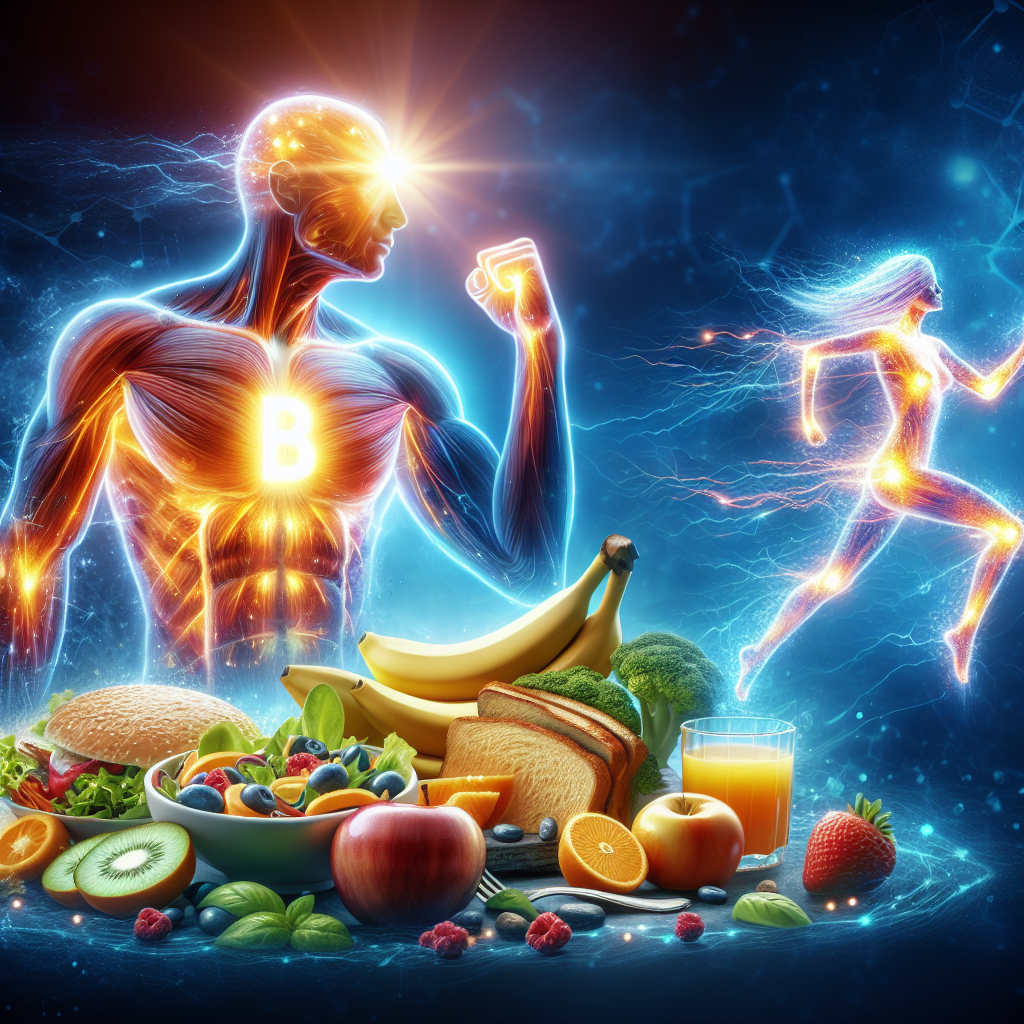How to Boost Your Energy Levels with B Vitamins
Living in today’s fast-paced world can leave many people feeling drained and fatigued. While getting ample sleep, maintaining a balanced diet, and regular exercise are critical for sustaining energy, one often overlooked aspect is the role of B vitamins in boosting your energy levels. B vitamins are essential nutrients that significantly impact your body’s ability to produce energy. This article delves into how B vitamins work to enhance your energy levels and offers practical tips on incorporating them into your daily routine.
Understanding B Vitamins
B vitamins are a group of eight essential nutrients that play crucial roles in maintaining overall health. These include:
1. Vitamin B1 (Thiamine)
2. Vitamin B2 (Riboflavin)
3. Vitamin B3 (Niacin)
4. Vitamin B5 (Pantothenic Acid)
5. Vitamin B6 (Pyridoxine)
6. Vitamin B7 (Biotin)
7. Vitamin B9 (Folate)
8. Vitamin B12 (Cobalamin)
Each of these vitamins contributes to different aspects of energy production and overall well-being. They help convert dietary energy from carbohydrates, fats, and proteins into adenosine triphosphate (ATP), the molecule that stores and releases energy as needed by the body.
The Role of Each B Vitamin in Energy Production
1. Vitamin B1 (Thiamine): Thiamine plays a critical role in the conversion of carbohydrates into energy. It is essential for the functioning of the nervous system and muscles.
2. Vitamin B2 (Riboflavin): Riboflavin is involved in energy production by participating in the electron transport chain, a series of reactions that generate ATP.
3. Vitamin B3 (Niacin): Niacin is crucial for the metabolism of food into energy. It also supports the health of skin, nerves, and the digestive system.
4. Vitamin B5 (Pantothenic Acid): This vitamin is part of coenzyme A, which is involved in the synthesis and oxidation of fatty acids. It helps in converting fats and carbohydrates into energy.
5. Vitamin B6 (Pyridoxine): Pyridoxine is involved in amino acid metabolism, the creation of neurotransmitters, and the production of hemoglobin. It indirectly supports energy production by aiding in the metabolism of proteins.
6. Vitamin B7 (Biotin): Biotin helps convert carbohydrates, fats, and proteins into energy and is essential for maintaining healthy hair, skin, and nails.
7. Vitamin B9 (Folate): Folate is necessary for DNA synthesis and repair, as well as red blood cell formation. It helps in cell division and growth, indirectly supporting energy levels.
8. Vitamin B12 (Cobalamin): Vitamin B12 is vital for the formation of red blood cells, neurological function, and DNA synthesis. It helps prevent megaloblastic anemia, which can make people feel weak and tired.
How to Incorporate B Vitamins into Your Diet
Boosting your energy levels with B vitamins involves incorporating foods rich in these nutrients into your diet. Here are some dietary sources for each B vitamin:
– Vitamin B1: Whole grains, pork, legumes, and seeds.
– Vitamin B2: Milk, eggs, lean meats, green vegetables, and fortified cereals.
– Vitamin B3: Poultry, fish, whole grains, and fortified bread.
– Vitamin B5: Chicken, beef, potatoes, oats, and tomatoes.
– Vitamin B6: Fish, beef liver, potatoes, and non-citrus fruits.
– Vitamin B7: Eggs, almonds, spinach, and sweet potatoes.
– Vitamin B9: Leafy green vegetables, citrus fruits, beans, and fortified cereals.
– Vitamin B12: Meat, fish, dairy products, and fortified plant-based milk.
Supplements: A Practical Option
While diet is the best way to get your B vitamins, supplements can be a practical option for those who may not get enough of these nutrients from their food. B-complex supplements contain all eight B vitamins and can be a convenient way to ensure you’re meeting your daily requirements.
It is important to consult with a healthcare provider before starting any supplement regimen, especially if you have underlying health conditions or are taking other medications.
Lifestyle Tips to Maximize Energy Levels
1. Balanced Diet: A balanced diet with a variety of foods ensures that you get all the essential nutrients, including B vitamins.
2. Regular Exercise: Physical activity improves circulation and energy levels.
3. Adequate Sleep: Aim for 7-9 hours of sleep per night to allow your body to rest and rejuvenate.
4. Stay Hydrated: Dehydration can cause fatigue, so drink plenty of water throughout the day.
5. Stress Management: Chronic stress can drain your energy. Practices like mindfulness, yoga, and meditation can help manage stress effectively.
FAQs
Q: Can I take a B-complex supplement if I’m already eating a balanced diet?
A: While a balanced diet is the best source of B vitamins, some people may still benefit from a B-complex supplement, especially if they have higher needs or certain medical conditions. It’s best to consult a healthcare provider.
Q: Are there any side effects of taking B vitamin supplements?
A: B vitamins are water-soluble, so excess amounts are typically excreted in the urine. However, high doses can cause side effects like nerve damage (B6) or skin flushing (B3). Always follow the recommended dosage.
Q: How long does it take to see an improvement in energy levels after increasing B vitamins intake?
A: The time frame can vary depending on individual factors like existing nutrient levels and overall health. Some people may notice improvements within a few days to weeks.
Q: Can B vitamins help with mental fatigue?
A: Yes, B vitamins play a role in brain function and can help reduce mental fatigue. Vitamins B6, B9, and B12 are particularly important for cognitive health.
Q: Are there specific groups of people who are more likely to be deficient in B vitamins?
A: Yes, vegans and vegetarians, older adults, pregnant women, and individuals with certain medical conditions (like Crohn’s disease) are more susceptible to B vitamin deficiencies.
Conclusion
B vitamins are indispensable for energy production and overall well-being. By incorporating foods rich in B vitamins into your diet or considering supplements, you can help boost your energy levels and improve your health. Always consult with a healthcare provider to tailor any supplement use to your specific needs.

